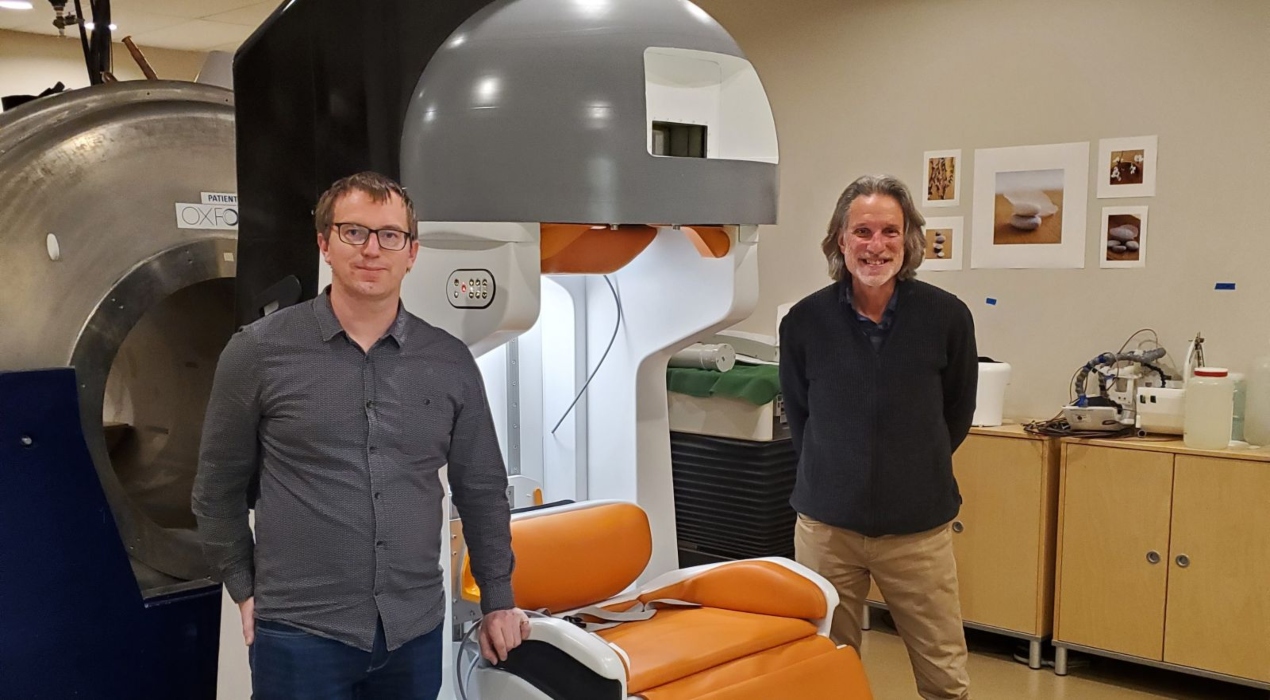
Responsible Research and Innovation (RRI) researchers have significantly contributed to developing and installing the magnet utilised in the portable scanner. This innovative magnet technology is undergoing trials as part of a collaborative project between the RRI and the University of Minnesota in the United States. The RRI researchers have been actively involved in designing, fabricating, and optimising the magnet system to ensure its compatibility with the portable scanner.
Through this collaborative research and development, the RRI team has successfully implemented cutting-edge magnet technology that offers enhanced portability without compromising the quality and accuracy of the scanning process. The portable scanner, equipped with an advanced magnet system, holds great promise for various applications, including medical diagnostics, on-site inspections, and field research.
A senior engineer at RRI, Ben Parkinson, expresses that the magnet’s small size is the key to making MRI scanners portable. Smaller scanners will also mean a more positive patient experience. “Traditional MRI scanners are large and stationary machines, but with advancements in magnet technology, it has become possible to develop smaller and more compact scanners,” he said.
According to Professor Michael Garwood, the study’s principal investigator from the University of Minnesota Medical School, the design of the magnet used in portable MRI scanners can make these scanners transportable to populations and environments virtually anywhere.
The portability of MRI scanners has significant implications for expanding access to medical imaging technology beyond traditional healthcare settings. It enables conducting diagnostic imaging in rural communities, disaster-stricken regions, mobile clinics, and other challenging environments.
Bringing MRI scanners to these populations and environments can improve healthcare outcomes by enabling timely and accurate diagnoses, guiding treatment decisions, and facilitating preventive care.
The RRI and the University of Minnesota collaboration exemplify the importance of cross-disciplinary partnerships and knowledge sharing in advancing research and innovation. This ongoing collaborative project with the University of Minnesota aims to validate further the portable scanner’s effectiveness and reliability in real-world scenarios. It is underway to assess the scanner’s performance, optimise its capabilities, and explore potential areas of improvement.
The accomplishments of the RRI researchers in developing and implementing the magnet for the portable scanner highlight their dedication to pushing the boundaries of scientific discovery and technological innovation. Their work is a testament to the potential of responsible research and innovation in driving transformative advancements that benefit society.
“Developing a device that requires seamless integration of mechanical and electromagnetic components would be a complex task. However, the team has achieved remarkable success, and I am thrilled to continue our partnership,” said Mr Parkinson.
Mr Parkinson is optimistic that in the future, portable scanners like these may empower communities in remote and resource-limited settings. They will have the potential to solve health inequities, facilitate research in understanding brain development and degeneration in diverse populations better, and enhance access to high-quality clinical care.
















